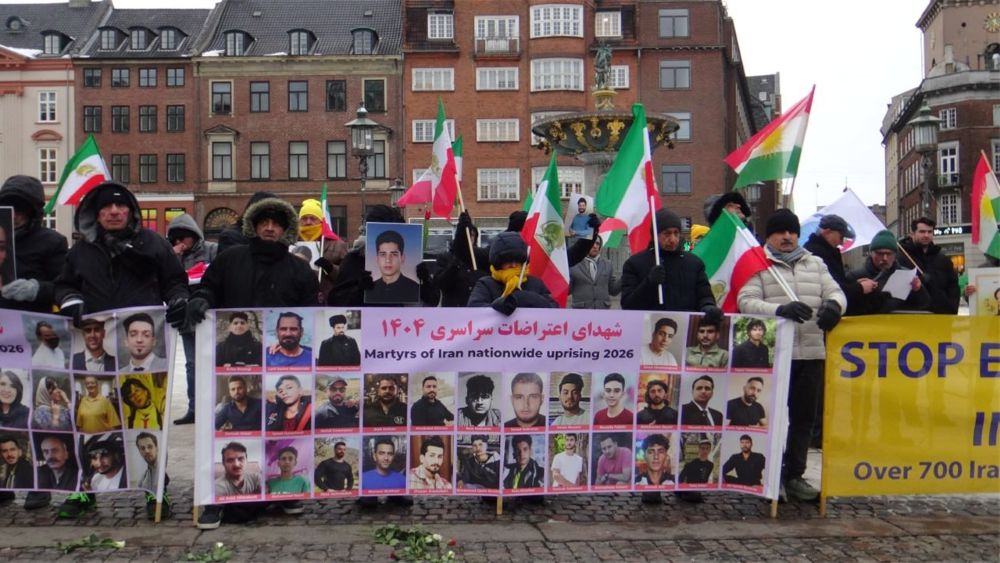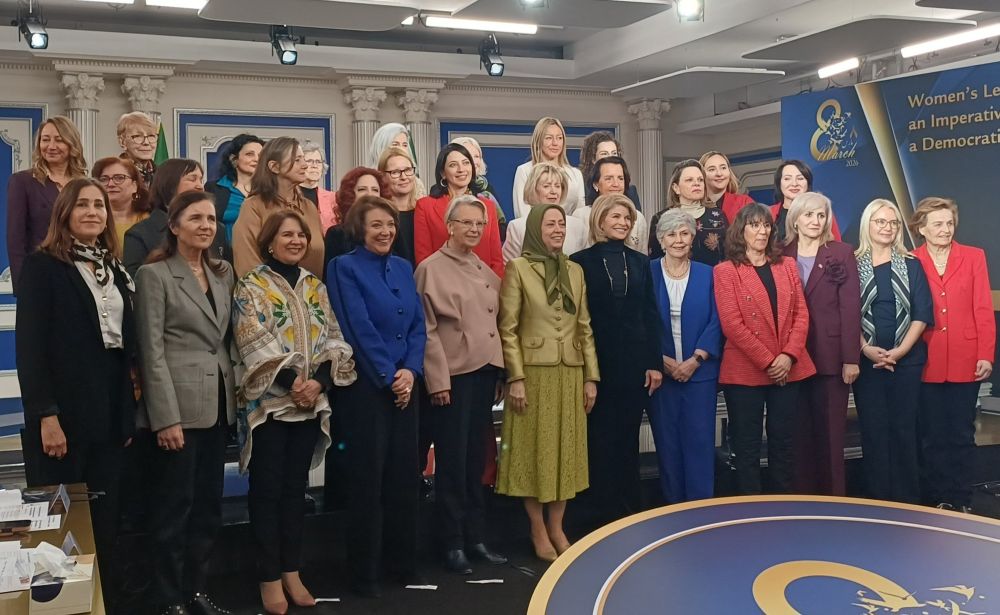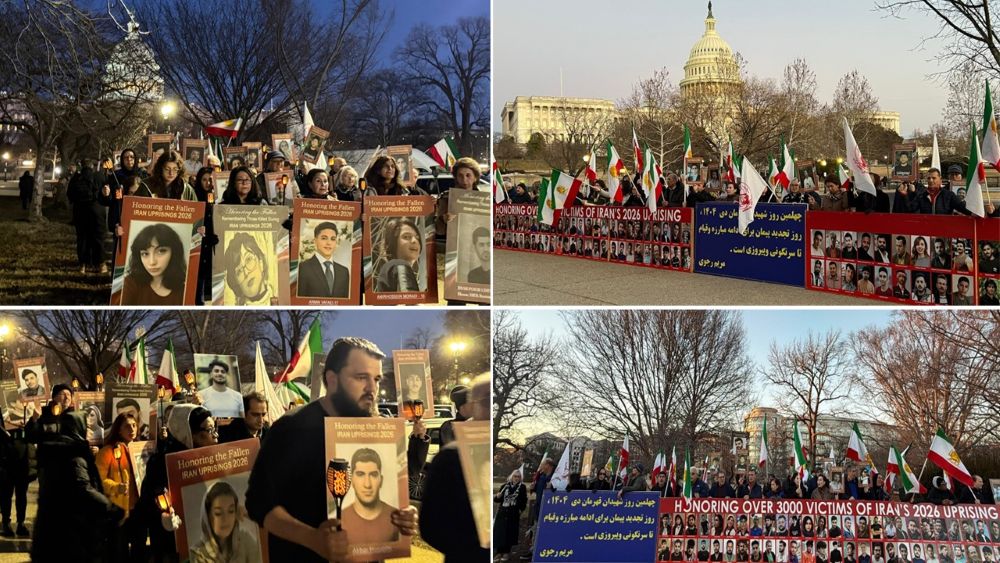Gulnara Shahinian, UN Special Rapporteur on Contemporary Forms of Slavery (2008-2014) from Armenia, addressed at the International Conference on the 1988 Massacre, attended by 1,000 Former Political Prisoners — 27 August 2021.
Thank you very much and for inviting me to this panel and I was very very interested to receive the voices from the field. Thank you for opportunity to view this film. Last year I was among the 152 signatories of the letter to UN seeking Commission of Inquiry into Iran’s 1988 extrajudicial executions of thousands of political prisoners. That call states that the families of the victims, survivors, and human rights defenders are, today, the subject of persistent threats, harassment, intimidation, and attacks, because of the attempt to seek information and to seek truth.
This letter brought to me many memories, stories of many people in different parts of the world, who lost their lives for their political, ethnic, religious views and identity, whose memories shaped also my history, history of genocide, history of gulags, and history of region where I live. And the current process where we are leading with attempts by some states to rewrite and distort history, and even deny memory to close the ones and descendants, and violating the most inherent right, right to truth.
Indeed, our human history is marked with massacres and then recognized the non-punished crimes where the situations when atrocities are not only unpunished, but those who committed this, are whose leadership has committed has been heroes, have become heroes in the country. And they’re remembered by the political establishment as seniors of the country, as leaders to follow.
But that’s not with people in this countries, the close ones, the relatives and dear ones who have been killed and not for humanity, as the memory of injustice of crimes and denials, forms moral history, and the delegations to seek justice. If we want our civilization to continue.
It is hard to find a region in the world that has not had mass graves, which immediate result of repression, conflict or linked to criminal activities. They may be a result of natural disasters, pandemics, but they always embody human rights violations.
Adam Rosenblatt writes in his article, the deaths on this earth, form an underground map of atrocity that stretches across the planet’s surface.
Traveling in many countries, in my capacity as special rapporteur, I was always called for meeting by mothers and relatives of those family members who have been unjustly killed for their political views, or being minority, or a religious group. And the centrality and significance of the preservation of grace of violent, and unavow for this holds deep in people’s experience, and…. of their daily lives. The emotional, personal, religious, social, legal, and historical significance of mass graves cannot be overwhelmed or overstated, for the families of who’s buried there, for the survivors, and their community for the countries concerned and for all of us in humanity.
Despite the global scale and their significance to so many, too little has been done to ensure respect to handling of mass graves. Many left un-acknowledged, unprotected, unpreserved, and even covered up, disgraded or destroyed, and mentioning that in public becomes crime.
Mass graves are places of evidence, critical to effective prospect of formal justice, the hope remains of those who denied the identity and death. There are spaces for memory for the family members. They are places for public records, proof that heinous events took place which must never be forgotten.
Especial rapporteur writes in her report, there are crimes depositories of evidence of likely growth of human rights violation in a working thus investigated and formal accountability obligations. The mass grave suggests that remains too were handled and lawfully intended to obstruct not only reparation to loved ones, but formal injustice too. In other words, a mass grave signifies commission of multiply secret crimes.
Amnesty International and other organizations in their recent report and also Special Rapporteur on extrajudicially summary of arbitral retribution expressed concerns and reported attempts by Iranian authorities to continue and destroy evidence of past violations, including the reported mass extrajudicial executions of political dissidents of 1988. Common mass grave site, which is believed to contain the remains of victims of enforced disappearance and summary executions perpetrated in 1988.
This order is the latest of the attempt to interfere with evidence of the executions, which have included bulldozing gray stones, and the harassment of relatives, such as Maryam Akbari Monfared who are seeking truth and accountability,
It is impossible to raise memory whatever cruel actions are taken. In this connection, there is a great in the role of the states, and international community is critically important. This site must be protected and staged through very responsibility for the protection and treatment of the sites. Mass graves have strong historical and educational value and special human rights mechanisms should be developed and applied to protect the sites. The respect to a lawful handling of the mass graves must be assured, an approach in which diversity of claims, rights and obligations are recognized, and in which a fair balance can be struck across those interests. The international community must do much more to support the countries and communities where the sites are located.
Current Human Rights framework should be developed in collaboration with the states to ensure respectful and local handling of mass graves, an approach in which the diversity of claims rights and obligations are recognized and in which a fair balance can be strapped across those many interests and victims of the family survivors, affected communities which are central and must be enabled to actively and meaningfully participate in decisions about management of mass graves.
All the actions to enhance and protect human rights are extremely critical now. It must be ensured that present and future generation never forget the heinous crimes that lead to this many mass graves and work actively to be sure that repetition of this violence never allowed. We always say never again, but it happens again.
We have to call to an accountability. We have to call that we cannot allow it happen again in any country of the world. Thank you for your attention.



